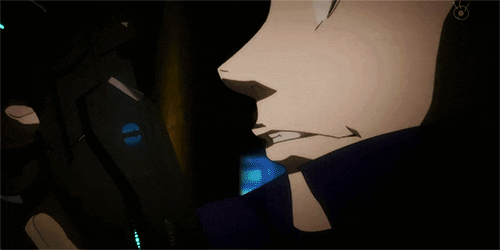- VerseTaku
- Posts
- Future's FUTURE and Psycho-Pass: The Future of Society
Future's FUTURE and Psycho-Pass: The Future of Society
In an age where music and visual narratives interlace more intricately than ever, Future's "FUTURE" and the dystopian world of "Psycho-Pass" stand out as poignant explorations of the human condition set against a backdrop of societal upheaval. This issue of VerseTaku peels back the layers of artistry to a core of shared emotions and themes.

The Mirror of Time: FUTURE meets Psycho-Pass
Atlanta rapper Future's eponymous album "FUTURE" paints a lavish yet fragmented picture of success, love, and the personal toll of fame. Contrastingly, "Psycho-Pass," the cyberpunk anime series directed by Naoyoshi Shiotani and written by Gen Urobuchi, delves into a world where the omnipresent Sybil System judges the population's potential to commit crimes, offering a grim perspective on law, order, and free will.
The heartbeat of both these works is a profound discussion on identity and society's trajectory. Future's tracks like Mask Off reveal the ominous complexities of personas within fame.
"Percocets, molly, Percocets Mask on, f**kin' mask off"
In an almost uncanny reflection, "Psycho-Pass" wrestles with masks society places on individuals through the eyes of its characters, who must adhere to or rebel against the Sybil System's chilling judgment.
The Symphony of Storytelling
The lyrics and beats in "FUTURE" resonate with Psycho-Pass's animation and narrative. Future's verses are a pulsating rhythm of highs and lows, much like the anime's fluctuation between introspective calm and action-packed drama. Moreover, the beats' futuristic trap influences act as a harmony to Psycho-Pass's cold, industrial world.
Emotional Resonance and Audience Echoes
Both album and series are tales of inner turmoil in a tailored exterior universe, striking chords of empathy, despair, and introspection within their audiences. Threads of conversation extend beyond the confines of media, questioning our understanding of control, reality, and the shades of morality in between.
Speaking with Lyric and Dialogue
Future's raw delivery and Psycho-Pass's script tear through superficial narratives. Such is voiced impeccably by Akane Tsunemori:
"The law doesn't protect people. People protect the law."
This quote encapsulates the album's underlying message about the façade of societal norms and the burden of self-responsibility echoed in Future's narratives.
Conclusive Musings
Fans of "FUTURE" can peer into an extrapolated world in "Psycho-Pass," seeing the album's themes extrapolated into a society built on calculated foretelling of human behavior. Conversely, watchers of "Psycho-Pass" can find a musical expression molded by similar pressures in Future's work.
Why is this meaningful? Because art in its many forms is not only a reflection of society but also a prediction of its path. It’s a cycle where creations inform reality as much as they are informed by it. By probing deeply into these media, we learn about our world, our psyche, and ultimately, our future.
In exploring the nexus between Future's "FUTURE" and "Psycho-Pass," we not only observe art imitating life but life imitating art in a ceaseless dialogue on the human experience. As we close another issue of VerseTaku, we leave with a better understanding of the power of expression across mediums and the timeless conversations they evoke about the society of today and the future we are inching towards.